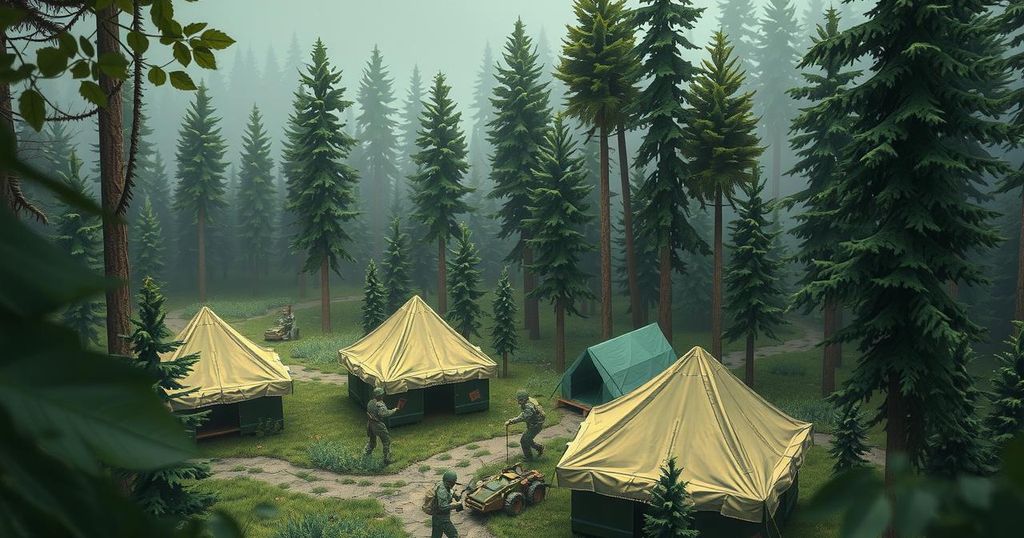The M23 rebels, backed by Rwanda, have announced their withdrawal from Walikale to support peace initiatives. Despite previous statements of maintaining troops in the town, military skepticism about their sincerity arises. The situation in eastern Congo remains complex, rooted in historical tensions and competition for resources.
The M23 rebels, reported to be backed by Rwanda, have announced their decision to withdraw from the recently seized town of Walikale in eastern Congo to support ongoing peace initiatives. Previously, the rebels indicated they would maintain a military presence in the town while advancing towards the capital, Kinshasa. This announcement followed M23’s abrupt withdrawal from planned negotiations with Congolese officials, which were intended to foster dialogue after years of conflict.
In a statement, the Congo River Alliance, which includes the M23 group, confirmed their intent to reposition forces from Walikale and neighboring regions. This action purportedly aligns with a ceasefire established in February and reflects their commitment to peace. However, skepticism remains among military personnel regarding the rebels’ intentions, as past ceasefires have been frequently violated.
A senior alliance member remarked that the repositioning of M23 forces aims to create a conducive environment for peace, although the specifics of their withdrawal site remain undisclosed. The official emphasized the need for Walikale to remain demilitarized to prevent the resumption of hostilities, indicating a desire for a sustained truce and dialogue.
Foreign Affairs Minister Therese Kayikwamba Wagner expressed cautious optimism, stating, “We hope that this will be translated into concrete action.” Meanwhile, military officials have noted their doubts about the rebel’s commitment to the announced withdrawal. One officer speculated that the M23 would reposition their forces rather than fully withdraw, amidst ongoing military operations in the region.
The strategic capture of Walikale places the M23 rebels significantly closer to Kisangani, Uganda’s fourth-largest city and a key logistics hub. The severity of the conflict in eastern Congo is deeply rooted in historical tensions, particularly stemming from Rwanda’s genocide and the struggle for control over lucrative mineral resources. Despite allegations against Rwanda regarding military support for the M23, the Rwandan government consistently denies such claims, insisting their actions are defensive in nature.
The recent announcement by M23 rebels to withdraw from Walikale raises questions regarding the sincerity of their commitment to peace as skepticism from military officials persists. The notable positioning of the rebels in relation to major cities like Kisangani highlights the complexity of the ongoing conflict in eastern Congo, which is entangled in deep-rooted historical tensions and resource competition. Continued dialogue and adherence to peace initiatives remain essential to resolving these longstanding issues.
Original Source: www.straitstimes.com




